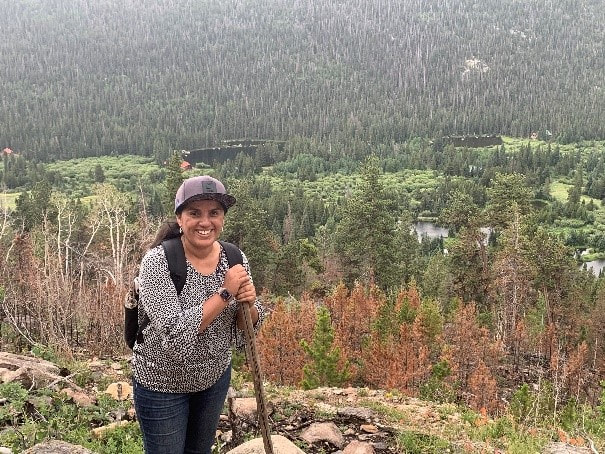For me, ecohydrology means vegetation response to soil and atmospheric climate for water. It is all about how plants influence water resources and how water availability affects the functioning and services of plants.
What are your undergraduate and graduate degrees in?
I have a B.Sc.(2010) in Agriculture specialization in Soil science and Agri-engineering from Tribhuvan University, Nepal. After my undergraduate program, I moved to Israel for a Diploma in High-tech Agriculture, then joined the Hebrew University of Jerusalem at Rehovot for my graduate degrees [M.Sc. (2013) and Ph.D. (2018)] in soil and water sciences.
How did you arrive at working in/thinking about ecohydrology?
The world is changing rapidly and unpredictably, and plant productivity has been declining, primarily because of the limitation of water resources. As global warming intensifies, so are trees and forests' water needs. We need to improve our understanding of increasing water use efficiency to a future environmental condition. In my graduate research career, I wanted to improve the water productivity of tree crops in arid regions. With time, I started to release the border impact of ecohydrology in the future of global environmental change. I am currently interested in improving our understanding and minimizing future projections of ecohydrological feedback on the forested ecosystem.
What do you see as an important emerging area of ecohydrology?
Recent research has focused on climate extremes, but minimal attention has been given to the effects of chronic environmental changes in eco-hydrological processes. For years, ecohydrology has been less studied due to high temporal and spatial heterogeneity in soils, vegetation, and climate patterns across the scales. The evolution of high thoughtful sensing technology and remote sensing products has resulted in an explosion of applications relevant to managing and monitoring natural resources. Combined, data availability and increased computing power have opened the door for modeling and studying ecohydrological patterns at larger scales to inform water budgets. These tools may help quantify the intensity of chronic effects of environmental changes and improve future productions.
Do you have a favorite ecohydrology paper? Describe/explain.
I keep two of my favorite articles all the time in my backpack.
- McDowell, N.G., Fisher, R.A., Xu, C., Domec, J.C., Hölttä, T., Mackay, D.S., Sperry, J.S., Boutz, A., Dickman, L., Gehres, N. and Limousin, J.M., 2013. Evaluating theories of drought‐induced vegetation mortality using a multimodel–experiment framework. New Phytologist, 200(2), pp.304-321.
- Trugman, A.T., Anderegg, L.D., Shaw, J.D. and Anderegg, W.R., 2020. Trait velocities reveal that mortality has driven widespread coordinated shifts in forest hydraulic trait composition. Proceedings of the National Academy of Sciences, 117(15), pp.8532-8538.
What do you do for fun (apart from ecohydrology)?
I love hiking, reading biography books, and spending time with my family.

 RSS Feed
RSS Feed